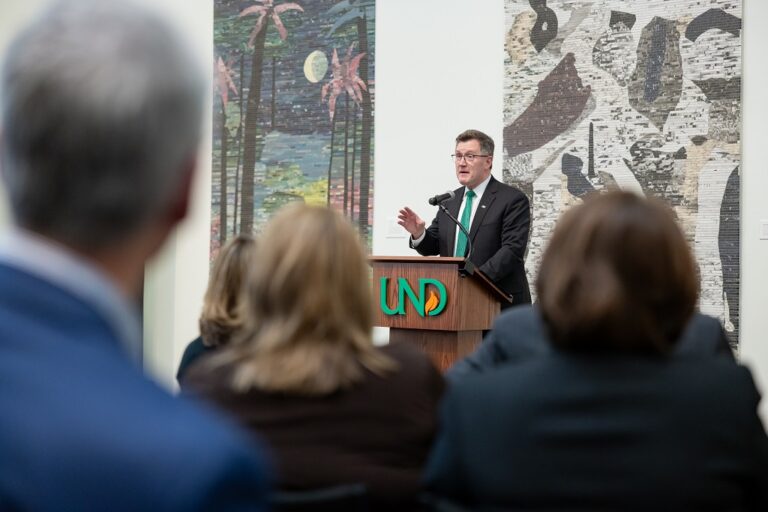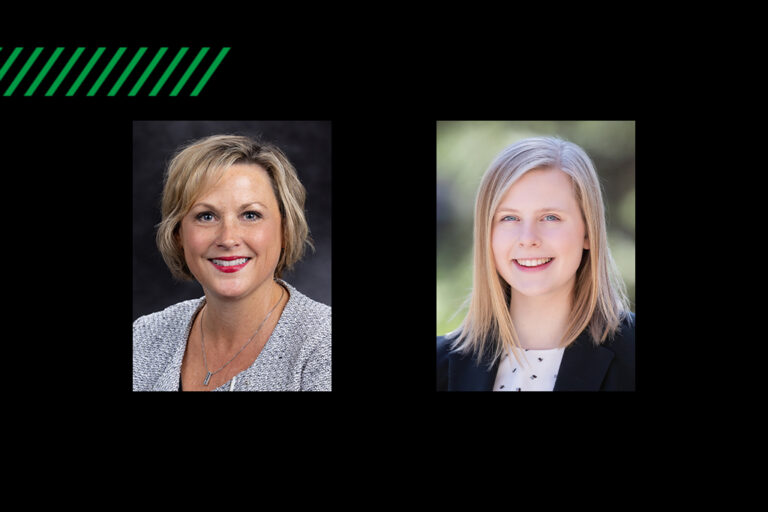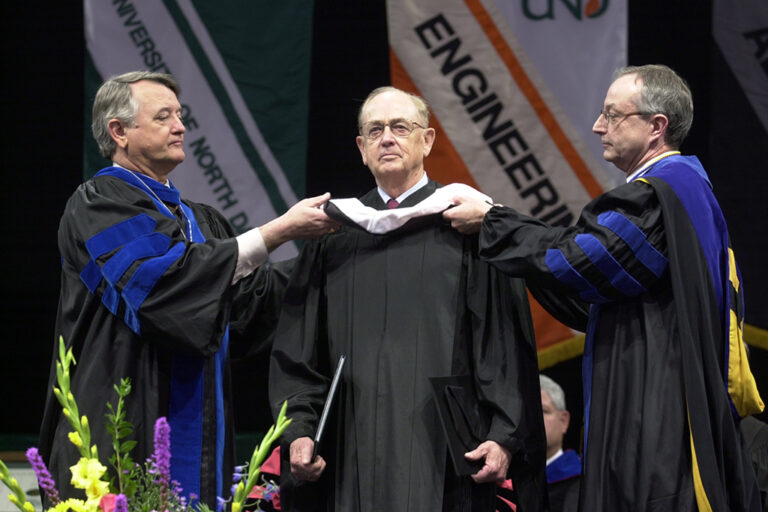Drop in the bucket
UND Nursing students take back unused, expired meds while educating on prescription drug abuse

A group of UND students were on the hunt for drugs in the Memorial Union last week.
The drugs weren’t illicit, but dangerous nonetheless.
The students were from the College of Nursing and Professional Disciplines (CNPD), and they were there to provide the campus and community with a safe way to dispose of unused and expired medications. The “Medication Take-Back” event was a success based on the haul they were able to dispose of properly.
They also provided passersby with information on how to dispose of medications on their own.
For example, restrain your natural reflex to flush old meds down the toilet. Instead, make your morning coffee and mix the pills into the used wet grounds so they dissolve. Seal with a disposable container and toss.
Even CNPD seniors Hannah Hagen and Samantha Johnoff, both from the Twin Cities, weren’t aware until just recently that you shouldn’t flush expired meds. But hosting the drug take-back event with fellow nursing students gave them an opportunity to share what they’ve learned about discarding and storing prescription medications.
The medication take-back event tied in with a separate project they were doing on opioid abuse.
“One of the things that can lead to opioid abuse is people keeping old medications they don’t need anymore,” Hagen said. “Getting those extra unneeded medications out of homes is something that can help combat the opioid problem.”
Keeping medications out of sight is also important. Having those pills lying around can lead to people becoming targets for break-ins, and kids can take their parents medications, leading to future problems.
”I talked to some people about safe ways to lock up the medications they’re keeping,” Johnoff said. “Keep them up high or in locked boxes.”
Prevention through education
The students are developing a community assessment for their Public Health Nursing Clinical class. They have gathered data and hosted discussions with the intent of developing a long-term strategy to increase education on prescription drugs in the community.
“We did a survey for UND students, and it doesn’t seem that people really think it’s a problem,” Johnoff said. “Through research, we’ve found that it is an issue, but people just don’t see it that way.”

They have also met with the Grand Forks Youth Commission, a group of 24 young people, ages 14 to 18, who advise the Mayor’s Cabinet and advocate to the community on behalf of youth.
The CNPD group found through their meetings that although high school and middle school students are told “don’t do drugs,” they’re not really sure what the drugs are or what they can do to the body.
“They were adamant about changing the way education is presented,” said Johnoff. “When we said opioid, they weren’t really sure what that was. If they understand the side effects, they’ll know why they shouldn’t use them.”
The group is acutely focused on educating junior high and high school students on prescription drugs, a class of drugs that doesn’t have the same stigma that prohibited drugs do, Hagen said. By the time they get to college, they know not to take them and why they shouldn’t be taking them.
“Some people think prescription drugs are different because they’re safe, but if it’s not for you, it’s just as unsafe as an illegal drug,” Hagen said. “So it’s important to try to change the education, and that’s one of our recommendations.”
Campus drop box?
In order to host a medication take-back, law enforcement must be present. Lt. Don Rasmuson of the University Police Department happily took on that task at the most recent event.
“Events like this give us some good exposure,” Rasmuson said. “Instead of dealing with law enforcement when things are bad, it helps for students to get to know us before problems occur.”
As the event was winding down and the pills piled up, it was clear students would benefit from a permanent medication drop box on campus. There are a handful of such locations around Grand Forks, but it may be difficult for students living on campus to reach those locations.
“Having a medication drop box on campus would be great,” Hagen said. “If this event is successful, then we will probably add that to our recommendations.”


